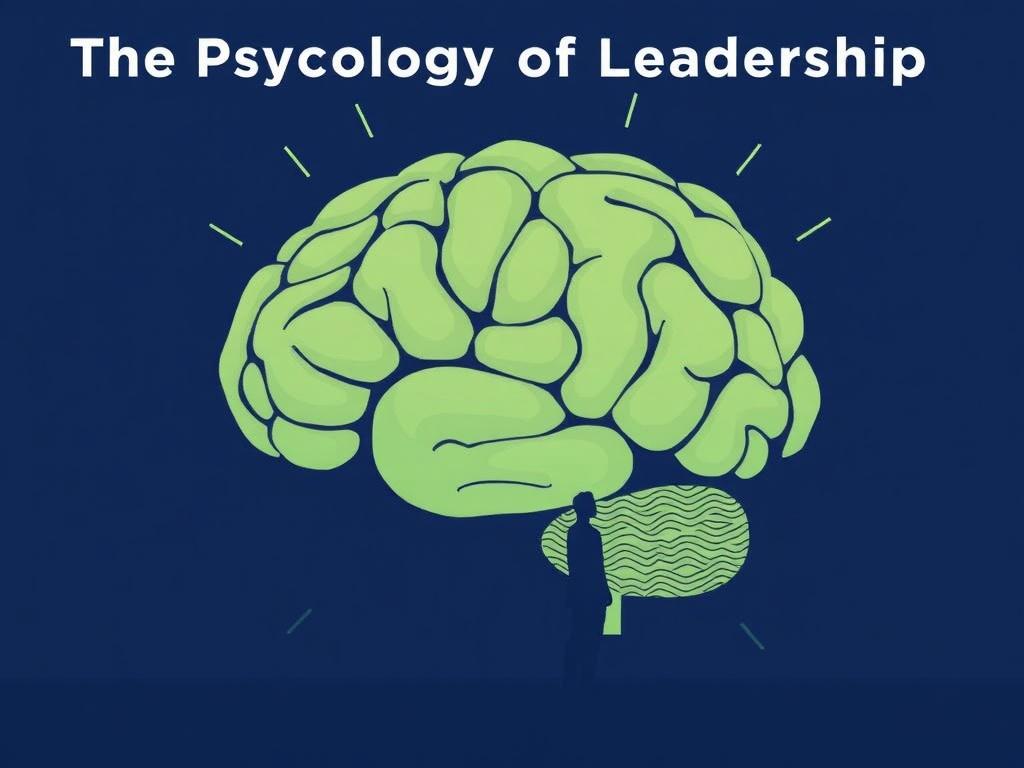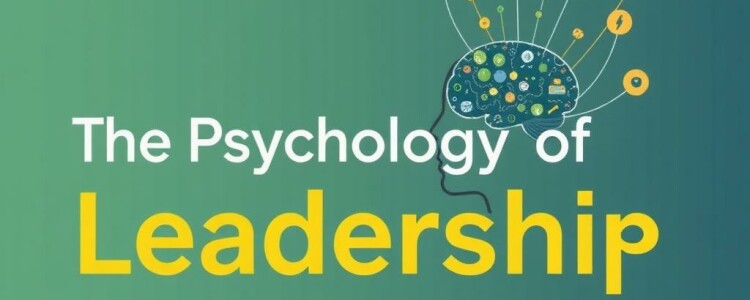Leadership is a fascinating aspect of human behavior that has captured the attention of psychologists, business experts, and everyday people alike. What makes one person an inspiring and effective leader, while another struggles to gain respect or drive a team forward? The psychology of leadership dives deep into these questions, exploring the mental and emotional traits that define great leaders. Whether you’re managing a team at work, leading a community group, or simply curious about what sets leaders apart, understanding these psychological principles can open your eyes to new approaches and strategies for success.
At its core, leadership is not just about giving orders or holding a position of authority; it’s about influencing people’s thoughts, behaviors, and emotions. It’s psychological because it involves understanding human motivations, communication styles, group dynamics, and decision-making processes. In this article, we’ll explore the essential psychological elements of leadership including emotional intelligence, personality traits, motivation theories, and how leaders adapt to challenges. We’ll also break down common leadership styles through a psychological lens, and provide practical tips on how anyone can develop their own leadership potential.
What Is the Psychology of Leadership?
Before we dive into specifics, it’s important to define what the psychology of leadership entails. At a basic level, it’s the study of how leaders think, feel, and behave in ways that influence others. This field examines:
- Personality characteristics that predict leadership success
- How leaders motivate and inspire their teams
- Emotional intelligence and its role in managing relationships
- Cognitive processes involved in problem-solving and decision-making
- Social and group dynamics that leaders must navigate
Leadership psychology isn’t only academic; it has practical applications that help us improve leadership training programs, identify potential leaders, and foster healthier workplaces. By looking at leadership through a psychological lens, we gain a richer, deeper understanding of what it truly means to lead.
The Role of Personality Traits in Leadership
One of the most discussed topics in leadership psychology is the role of personality. Which traits make someone a natural leader? Psychologists have long debated this, with some early theories proposing “great man” ideas — that leaders are born, not made. Today, research has advanced to identify specific characteristics that tend to be common in effective leaders.
The widely respected Big Five personality model—consisting of openness, conscientiousness, extraversion, agreeableness, and neuroticism—can give us insight. Here’s a quick overview of how these relate to leadership effectiveness:
| Personality Trait | Leadership Relationship | Description |
|---|---|---|
| Extraversion | Strong positive correlation | Outgoing, energetic, and assertive leaders tend to inspire and influence others more easily. |
| Conscientiousness | Moderate positive correlation | Leaders who are organized and dependable foster trust and reliability. |
| Openness | Moderate positive correlation | Open leaders embrace innovation and are adaptable to change. |
| Agreeableness | Mixed | Helpful and cooperative, but too much can lead to difficulty in making tough decisions. |
| Neuroticism | Negative correlation | High emotional instability often undermines leadership effectiveness. |
While no one trait guarantees leadership success, the combination of extraversion, conscientiousness, and openness tends to be a strong foundation. What’s fascinating is that other factors, such as a leader’s emotional intelligence and motivation, often play equally or more important roles.
Emotional Intelligence: The Heart of Leadership
Emotional intelligence (EI) has emerged as one of the most crucial components in leadership psychology. Coined by psychologist Daniel Goleman, EI involves the ability to perceive, understand, manage, and influence one’s own emotions and the emotions of others. Leaders with high emotional intelligence can navigate complex interpersonal situations with empathy and tact.
Why is EI so important in leadership?
- Self-awareness: Understanding your own emotional state helps you stay calm under pressure and recognize when you need to adapt your approach.
- Self-regulation: Leaders who control impulses encourage trust and stability in their team.
- Motivation: Emotionally intelligent leaders are driven by internal values and inspire others with their enthusiasm.
- Empathy: The capacity to see situations from others’ perspectives improves communication and conflict resolution.
- Social skills: Building strong relationships is vital to leadership—and EI enhances these skills.
Consider a manager who remains composed during a crisis, listens genuinely to team members’ concerns, and encourages collaboration. That is emotional intelligence in action. Research shows leaders with high EI create more positive organizational cultures, reduce turnover, and boost overall performance.
Motivation Theories Behind Leadership
Understanding why people follow leaders and how leaders inspire commitment ties directly into motivation, another key psychological concept. Several theories explain motivation, and each offers insight into leadership dynamics.
Maslow’s Hierarchy of Needs
Abraham Maslow proposed that humans are motivated by a hierarchy of needs—from basic physiological requirements to self-actualization. Leaders who recognize where their team members are on this spectrum can tailor their leadership style effectively. For example, a leader who helps employees feel safe and valued addresses their belongingness and esteem needs, building loyalty and engagement.
Herzberg’s Two-Factor Theory
This theory divides workplace factors into hygiene factors (salary, working conditions) and motivators (recognition, achievement). Good leaders work to eliminate dissatisfaction by ensuring hygiene needs are met while actively promoting motivators to inspire higher performance.
Self-Determination Theory
According to this theory, autonomy, competence, and relatedness fuel intrinsic motivation. Leaders who empower their teams through autonomy, provide opportunities to grow skills, and foster strong social connections tap into deep sources of engagement.
| Motivation Theory | Leadership Focus | Practical Example |
|---|---|---|
| Maslow’s Hierarchy | Meet individual needs in a sequence | Offer job security, then challenge employees to grow |
| Herzberg’s Two-Factor | Remove dissatisfaction and increase satisfaction | Improve office conditions and recognize achievements |
| Self-Determination | Support autonomy, mastery, relatedness | Allow flexible work schedules and encourage teamwork |
By understanding what motivates others on a psychological level, leaders build trust and create environments where people thrive.
Decision-Making and Cognitive Processes in Leadership

Leadership often involves tough decision-making, sometimes under uncertainty and pressure. Psychology helps us understand how leaders think and make choices. Cognitive biases—systematic errors in thinking—can surprisingly influence even experienced leaders.
Some common cognitive effects that impact leadership decisions:
- Confirmation bias: Leaders may favor information that confirms their beliefs and ignore contrary evidence.
- Overconfidence bias: Leaders often overestimate their knowledge or ability to predict outcomes.
- Groupthink: Desire for harmony can lead leaders and teams to accept flawed decisions without critical evaluation.
- Anchoring bias: Initial information overly influences final decisions.
Good leaders are aware of these traps and seek to counteract them using techniques like gathering diverse opinions, encouraging dissent, and reviewing decisions carefully. Also, many effective leaders use intuition—a rapid understanding of situations based on experience and insight. Intuition can complement rational analysis, especially in complex or fast-moving scenarios.
Social and Group Dynamics in Leadership
Leadership psychology also explores how leaders interact with groups. Humans are social creatures, and leading a group involves managing group behaviors and norms.
Role of Social Identity
People derive part of their identity from the groups they belong to. Effective leaders cultivate a strong, positive social identity by embodying the group’s values and vision. This shared identity fosters unity and collective motivation.
Power and Influence
Leadership involves exercising power, but how a leader uses that power matters immensely. Psychologists differentiate between:
- Expert power: Influence based on knowledge and skills.
- Referent power: Influence earned through likability and respect.
- Coercive power: Based on fear or punishment, often damaging for long-term leadership.
- Legitimate power: Derived from formal position or authority.
The most sustainable and effective leaders use expert and referent power, fostering respect rather than fear.
Leadership Styles and Their Psychological Roots
Leadership isn’t one-size-fits-all. Various leadership styles reflect different psychological approaches and work better in different contexts.
| Leadership Style | Description | Psychological Strengths | When It Works Best |
|---|---|---|---|
| Transformational | Inspires followers with vision and enthusiasm | High emotional intelligence, motivational skills | Change environments, innovation-driven teams |
| Transactional | Focuses on rewards and punishments to manage | Clear structure, consistent enforcement | Routine tasks, stable environments |
| Servant Leadership | Leaders prioritize serving the needs of others | Empathy, humility, strong social orientation | Teams needing support and cohesion |
| Autocratic | Leader makes decisions alone with little input | Decisiveness, control | Crises or highly structured settings |
| Democratic | Leader encourages participation in decisions | Open communication, collaboration | Creative problem-solving, knowledgeable teams |
Each style taps into different psychological mechanisms, and the most effective leaders are often those who can flex their approach according to the situation.
How Leaders Develop Psychological Strengths
The great news about the psychology of leadership is that these traits and skills can be developed. Leadership is not solely innate; it can be learned, practiced, and honed.
Here are some practical steps to develop your leadership psychology:
- Increase self-awareness: Reflect on your emotions, strengths, and weaknesses through journaling or mindfulness.
- Develop emotional intelligence: Practice empathy, active listening, and regulating your emotional responses.
- Learn to motivate others: Understand individual needs and tailor your communication.
- Study and practice decision-making: Recognize cognitive biases and seek diverse viewpoints.
- Adapt leadership styles: Be flexible and responsive to group dynamics and situational needs.
- Seek feedback and mentorship: Learn from others’ insights and experiences.
Many leadership development programs now incorporate psychological training, helping emerging leaders boost their effectiveness by focusing on the mental and emotional components of leadership.
Conclusion
The psychology of leadership reveals that great leaders are not simply born but shaped through a complex interplay of personality traits, emotional intelligence, motivation, cognitive processes, and social influence. Understanding the mental frameworks behind leadership behavior equips us to become better leaders and followers alike. By cultivating self-awareness, honing emotional skills, and adapting our leadership styles to fit the needs of others, anyone can enhance their ability to inspire, guide, and make meaningful impacts. The true art of leadership lies in blending psychological insight with genuine human connection—the foundation for influencing positively and leaving a lasting legacy.




















